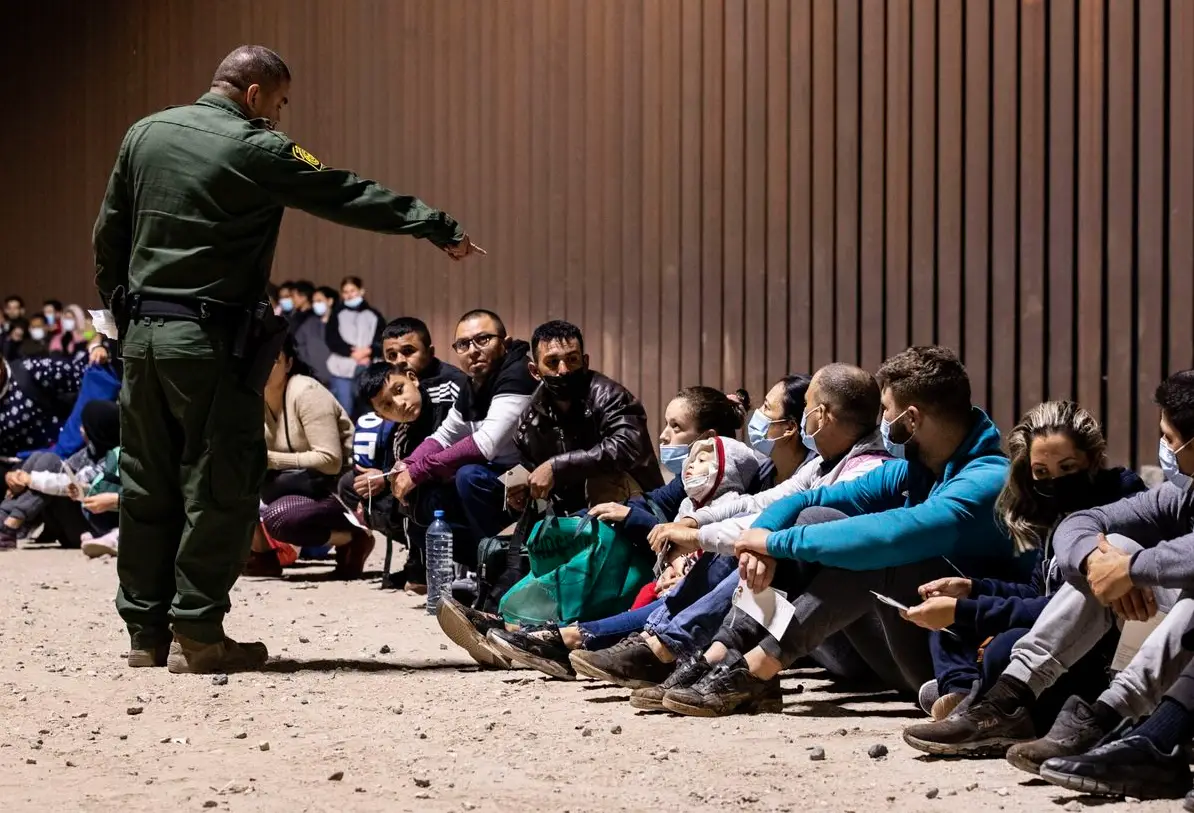The year 2025 may be remembered for exposing necropolitical practices in the realm of migration. Not because these practices didn’t already exist, but because they’ve been magnified by media coverage and the wider circulation of realities long known and debated by those who live, study, or closely follow mobility. Today, the criminalization of migration is more irreversible than ever. In that context, two news stories stand out:
The first one is titled: “Eduardo Bolsonaro proposes jailing Brazilian migrants in El Salvador” (The Intercept Brasil, May 16, 2025).
That headline is followed by this text: “Eduardo Bolsonaro, from the Liberal Party of São Paulo, published a video on his YouTube channel revealing negotiations with Donald Trump allies to export detained Brazilian migrants in the United States — allegedly linked to criminal organizations — to El Salvador’s mega-prison.”
The congressman’s proposal aligns with Donald Trump’s agenda. In the U.S., being a migrant — documented or not — makes a person liable to be captured, jailed, deported, and deprived of liberty without due process and without any proven crime — whether they are men, women, or children.
The verdict can be handed down and enforced simply if the person in question is male, Black or mixed-race, and from a poor country in the Global South. One indisputable piece of “evidence”: tattoos, which are associated with gang membership.
Although the way this proposal is publicized provokes outrage, it also has the potential to attract conservative sectors, since it targets people “allegedly linked to criminal factions” — despite the complete absence of legal procedures guaranteeing the right to a defense.
The second story is titled: “U.S. Department of Homeland Security considers reality show where immigrants compete for American citizenship” (O Globo, May 17, 2025). The subheading adds: “The proposal had already been discussed with the Obama and Biden administrations.”
Though immediately denied, the report reveals how the logic of reality television has infiltrated society through the practice of gamification — applying game mechanics to life experiences — and the idea of competition tied to merit, which justifies the imposition of a new rationality: the neoliberal one. In other words, to have rights, you must first earn them.
The reality show logic had already surfaced in our research on entrepreneurship as a so-called solution for social and labor inclusion among recently arrived migrants in Brazil, particularly those in urgent need of income. These training programs were offered in São Paulo through a partnership between an NGO, UNHCR, and tech giants like Google, Uber, and Meta, highlighting another trend in the labor world: platformization.
The practice of detaining and incarcerating migrants can be traced back to the U.S. invasion of Afghanistan in 2001, as Michel Agier points out in Refugees in the New World Order. He identifies a pattern between expulsion and “reception,” and the link between war and humanitarian response. Understanding today’s global humanitarian apparatus requires three key factors: the simultaneous existence of wars (such as those in Sudan and Ukraine), collective violence (such as the genocide of the Palestinian people?), and terror or unrest (as in Haiti or the Democratic Republic of Congo) — all of which force civilian populations into death or displacement.
To this list we must add the micro-expulsions of vulnerable populations, caused by climate and environmental disasters — like the dam collapses in Minas Gerais — or by violence that prevents Indigenous communities from living on their ancestral lands, such as the Warao diaspora.
Faced with this reality, humanitarian intervention is presented as the solution, based on a model of control and care: the “care, cure, and control” principle applied in refugee camps, which function as policing/military, food, and health apparatuses, often located on the margins, far from city centers. In Brazil, the most prominent example is Operação Acolhida (Operation Welcome), carried out in the state of Roraima.
An estimated 140,000 Venezuelans have passed through the program, relocated to 1,068 municipalities across Brazil’s five regions (IOM, 2024). In the border town of Pacaraima and in Boa Vista, both in Roraima, the operation still maintains various facilities, including shelters, temporary accommodations, and screening, reception, and relocation posts. This is a civil-military operation in which the Army plays a central role in both maintaining the infrastructure and overseeing the internal resettlement of Venezuelan migrants.
While the shelters operated by Operação Acolhida may not be refugee camps in the strict sense, certain parallels are clear: they are built under the guise of urgency and provisionality, managed outside the State and closer to third-sector organizations, which use international databases such as UNHCR’s PRIMES system. One of the main features of these complexes is the collection of personal and physical data from migrants through mapping technologies, forming what experts call a “biometric set” — a global synergy of technology, media, and human mobility.
Operação Acolhida was the subject of a 2024 investigative series by Agência Pública in collaboration with our research. These reports broke the silence of both the migrants who went through the program and the humanitarian workers involved. The complaints ranged from gender-based violence to the presence of criminal factions operating in and around the shelters. Yet these allegations have not prompted any response from the federal government or humanitarian agencies. The operation continues to be presented as a symbol of successful public policy, propped up by statistical reports and quantitative indicators — leaving no room for data that reflect the lived experiences of those within.
Finally, we return to a central idea developed by Achille Mbembe — best known for the concept of necropolitics — in his essay La Politique de l’inimitié (2020): the return of the enemy relationship on a global scale. Drawing on the forms of life imposed on Palestinians in the Gaza Strip, Mbembe argues that every camp begins with a project to divide human beings. He concludes that by restricting opportunities for contact, these systems maximize distance — detainees become invisible — and normalize indifference.
Silencing and normalizing: two essential tools of the historical power structures imposed by colonialism, now used to sort migrant lives into “useful” or “useless,” and therefore into lives that may be lived in precarious conditions — or simply allowed to die.
*Machine translation proofread by Ricardo Aceves.











